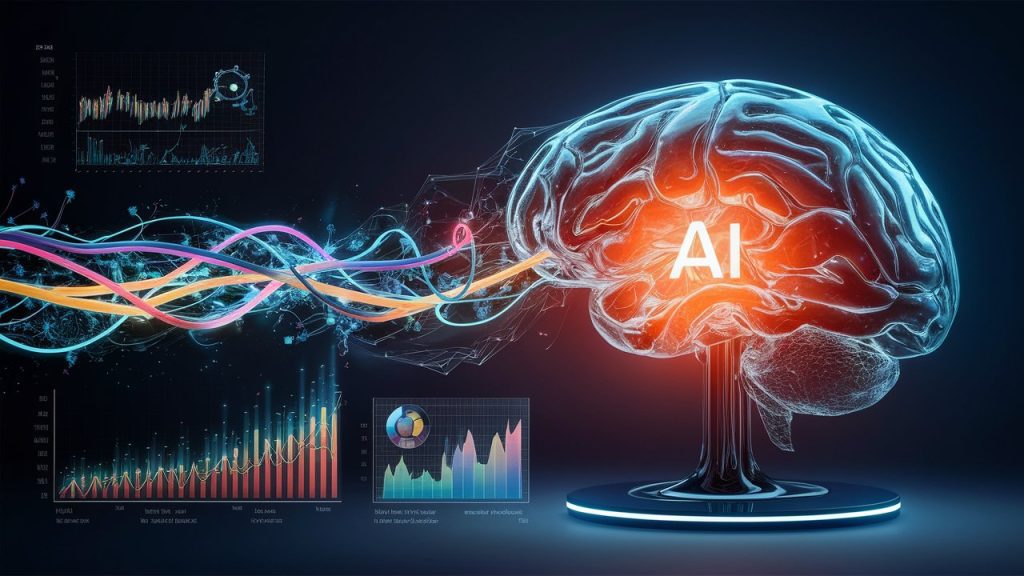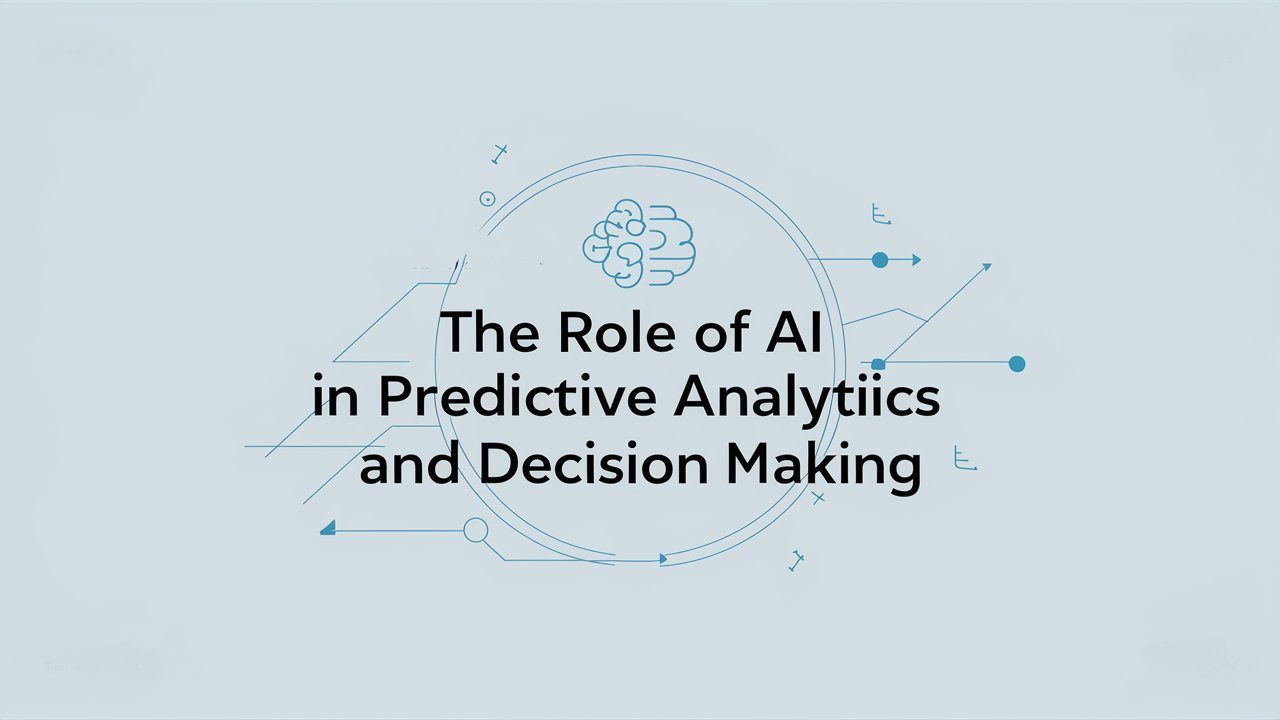AI is Revolutionising predictive analytics and decision-making processes in different fields/sectors. Thus, AI through its ML algorithms and big data offers insights and opts for computerized decision making. Here’s how AI is making a significant impact in these areas, Here’s how AI is making a significant impact in these areas and the Role of AI in Predictive Analytics. Explore more about our company on [our homepage].
Predictive Analytics

Understanding Predictive Analytics
With predictive analytics, one is able to determine the likelihood of a particular occurrence in future depending on the past occurrences. AI works complementarily with predictive analytics since it promotes the better production of these predictions.
Some of the areas where AI is being used in Predictive Analytics.

Healthcare
From The Role of AI in Predictive Analytics in Healthcare, Big data analytics using artificial intelligence is speeding up the prediction of diseases, patients, and the effectiveness of treatment. For instance, patient records may be used in predictive analytics to identify forthcoming illnesses and suggest preventative steps to enhance the quality of patients’ care and minimize hospitalization.
Finance
In the financial industry, AI-based predictive analysis approves loans, manages credit risk, and analyzes investments.. Thanks to the analysis of customers’ transaction trends and credit histories, AI can identify credit risks and fraudulent activities in real-time to safeguard institutions and customers.
Retail
In the retail business, AI predicts customer behavior, controls inventory, and develops marketing strategies. It predicts purchasing patterns and website visits to improve demand forecasting and avoid stock wastage.
Manufacturing
From The Role of AI in Predictive Analytics in Manufacturing, PM is a useful application in industries; particularly in manufacturing. AI collects data from machinery sensors to predict and prevent future equipment failure, thereby reducing repair expenses and downtime. Dive deeper into our [blog posts] for in-depth insights and examples.
Benefits of AI in Analytical Forecasting

- Accuracy: They have more accuracy as compared to human being in terms of handling large data and providing predictions.
- Speed: Real-time data analysis: As a current technology, AI can analyze data in real-time giving business timely information that is essential in decision making.
- Scalability: To account for the size of data, the AI solutions can perform well and complex analytical models are possible which can fit into different applications and industries.
- Decision Making: AI helps in decision-making by supplying quantifiable data and by automating processes, in addition to suggesting operations derived from predictive conclusions. This in turn helps organizations make better choices.
Applications of AI in Decision Making

Business Strategy
AI allows business organizations to create plans through identifying trends in the market, the movements of competitors and the likes, and consumer behavior. For instance: AI may suggest the most appropriate product price range, depending on the competitor’s prices or even the attractiveness of the particular market.
Supply Chain Management
In the supply chain, AI finds its application in the management of the supply chain and its processes in terms of stock, distribution and requirements prediction. Whereas the AI can accurately forecoast the opportunities of a particular supply chain concerning its disruption or demand alteration and may, thereby, reduce operational costs.
Customer Relationship Management (CRM)
AI optimizes the management of customer relations by recommending products best suited to the client and automating the communication with the client. Self-learning CRM applications can anticipate the customer’s requirements, suggest products to buy, and even suggest follow-up actions to increase customer satisfaction and retention. Discover our full range of [services] to see how we can bring your app vision to life.
Challenges and Considerations

Data Quality and Integration
Thus, for the AI to be useful in predictive analysis and decision supporting, quality data and data harmonisation are important factors. This is true in cases where you have either incomplete or inconsistent data that you feed into your analytical model so as to arrive at a certain conclusion, or in effect, make a certain decision.
Ethical Considerations
Some issues, which arise in relation to AI in decision making include preference for bias and privacy of data. Businesses must make sure that the implemented AI systems, as well as the outcomes produced to clients, are transparent and unbiased, and adheres to the mentioned data protection regulations based on the company’s capacity.
Technical Complexity
AI solutions are quite complex and their deployment entails the need for huge capital and technical personnel. It reveals that organizations need to spend both time and money to train their employees with AI skills and build up the AI-capable infrastructures in order to effectively incorporate AI into their decision-making system.
Conclusion
AI is enhancing predictive analytics as well as decision making processes by delivering sound information, performing laborious tasks and strategies. Thus, it can be stated that as AI technologies evolve, their impact in regard to the opportunities influencing the future of various industries will only grow. It will also mean that organizations that manage to incorporate AI in their operations would be able achieve better outcomes with higher speed than what is observed in their competitors’ operations.
Furthermore, there is a need to recognize various problems that are related to AI so that organizations may optimize its benefits concerning the enhancement of predictive analytical tools and approaches. [Contact us] today and let’s discuss your project in detail.

